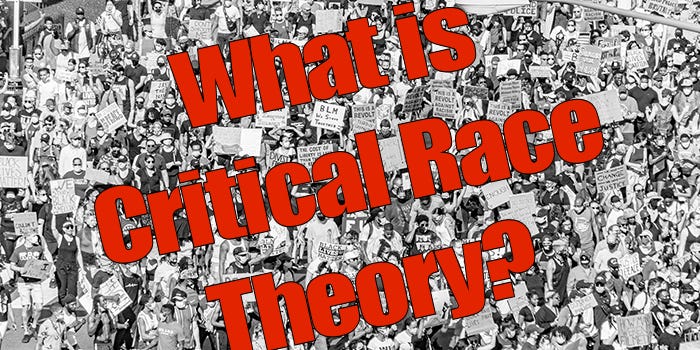CRT
Critical Race Theory
====================
**Critical Race Theory (CRT)** looks at all aspects of American life through the prism of race. It promotes identity politics, seeking to redefine the U.S. as a nation driven by racial groups with specific claims of victimization. CRT weakens the bonds that create trust and civic engagement, both in public and private spheres.
Origins and Development
-----------------------
Critical Race Theory emerged as a response to the limitations of traditional legal analysis, which failed to address the persistent racial inequalities within society. Drawing inspiration from civil rights movements, legal scholars such as Derrick Bell, Kimberlé Crenshaw, and Richard Delgado pioneered the development of CRT in the 1970s and 1980s. These scholars sought to challenge the notion of a color-blind society by critically examining how racial hierarchies and discrimination are perpetuated through law and social systems.
Core Tenets
-----------
Critical Race Theory encompasses several key tenets that inform its analytical framework:
1. **Recognition of Structural Racism:** CRT argues that racism is not solely the result of individual prejudice but is deeply embedded within societal structures and institutions. It emphasizes the need to recognize and challenge these systemic forms of racism.
2. **Intersectionality:** CRT highlights the importance of intersectionality, acknowledging that race intersects with other aspects of identity, such as gender, class, and sexuality. It recognizes that individuals may experience multiple forms of oppression or privilege simultaneously.
3. **Centrality of Lived Experience:** CRT places a strong emphasis on the lived experiences of marginalized individuals and communities. By centering these experiences, it seeks to validate and amplify voices often excluded from mainstream narratives.
4. **Critique of Objectivity:** CRT challenges the notion of objective neutrality, arguing that legal and social systems are shaped by subjective perspectives that often reflect and reinforce existing power dynamics. It encourages a critical examination of seemingly neutral laws and policies.
Criticisms and Debates
----------------------
CRT is rooted in critical theory, which posits that the world operates through power systems. It goes further by asserting that American law is inherently oppressive and that the entire country is systemically racist. According to CRT, this racism led to a collaboration between the capitalist class and working-class whites, hindering unity among the working class. The key principles of CRT are as follows:
1. Objective truth is not considered absolute; instead, various narratives compete for validity. The emphasis is placed on "lived experiences" which hold more significance than objective facts.
2. Individuals are categorized as either oppressors or victims, predetermined by immutable characteristics like race. Culture is defined by the power dynamics between different groups.
3. CRT contends that America is deeply rooted in systemic racism, necessitating its dismantling. The theory views the foundation of the nation as being rooted in a racist form of capitalism, which demands disruption and transformation.
* **Political Bias:** Critics argue that CRT is politically biased and promotes a particular ideological agenda, asserting that it hinders open dialogue and stifles alternative perspectives.
* **Oversimplification:** Some contend that CRT oversimplifies complex social issues by reducing them to a binary framework of oppressor versus oppressed, potentially neglecting individual agency and the nuances of race relations.
* **Resistance to Color-blindness:** Opponents claim that CRT's rejection of color-blindness perpetuates divisions by placing too much emphasis on racial categorizations, rather than promoting a society where race is irrelevant.
Conclusion
----------
In essence, CRT builds on critical theory's notion of power systems, focusing specifically on race, and advocates for a radical transformation of American society to address its perceived systemic racism and oppression.
